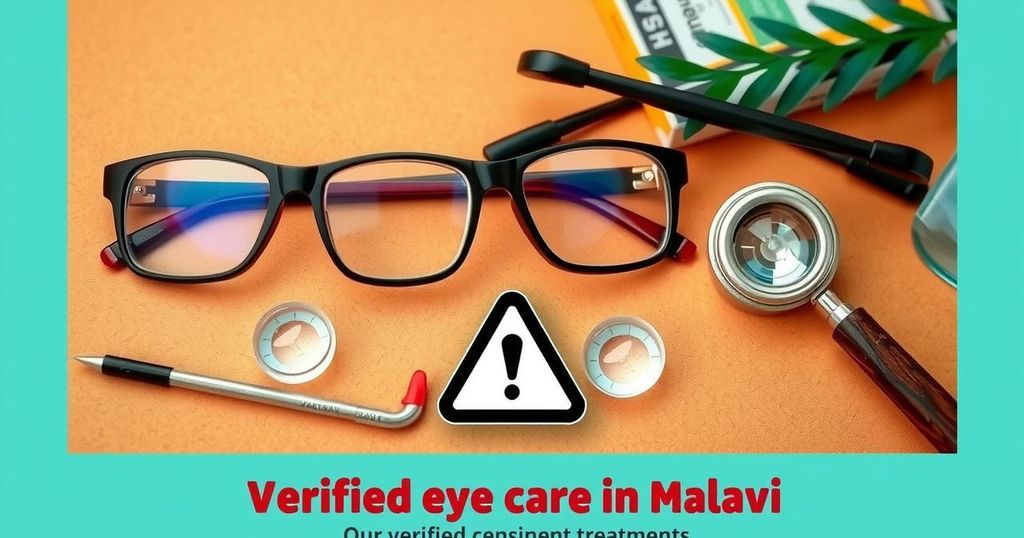Malawi Experts Warn Against Unsafe Eye Treatments Amid Rising Blindness Cases

Eye care experts in Malawi are warning against the unsafe use of unverified eye treatments, which are contributing to a growing number of cases of avoidable blindness. At the Malawi Optometry Association’s recent meeting, a call was made for better access to eye care services, especially contact lenses, in public hospitals and emphasized the need for utilizing qualified specialists to avert risks to eye health.
Eye health experts in Malawi have expressed serious concerns about the increasing reliance on unsafe and unverified eye treatments, warning that these practices are contributing to a disturbing rise in cases of avoidable blindness. During the recent 25th Annual General Meeting of the Malawi Optometry Association, Mwachumu Chipala, the Compliance Officer at the Medical Council of Malawi, stressed the importance of consulting only trained eye specialists for proper care.
Chipala pointed out critical issues, noting, “One of our biggest challenges is that people are turning to untrained individuals for eye care.” He further elaborated on the dangers, adding, “Worse still, some are applying unknown substances—especially during outbreaks like pink eye—which is extremely risky. The eye is one of the most delicate organs; once it’s damaged, there’s no replacing it.”
The meeting highlighted the importance of registering all practitioners with relevant authorities and following the Medical Practitioners and Dentists Act to assure ethical practices in eye care. Additionally, the Chairperson of the Malawi Optometry Association, Cassim Adams, raised a significant concern regarding the absence of contact lenses in public hospitals.
Adams noted, “We commend the government for its efforts in providing surgical camps and glasses, but contact lenses are just as essential, especially for patients recovering from eye injuries.” Located in Mzimba, Adams, an optometrist, emphasized how therapeutic lenses—a.k.a. bandage contact lenses—play a crucial role in protecting injured eyes and promoting healing while simultaneously enhancing vision.
In light of these concerns, the Malawi Optometry Association is urging both the Ministry of Health and development partners to incorporate contact lens services into the national healthcare system. They argue that this initiative could significantly improve care standards for countless individuals suffering from various eye conditions. This integrated approach would likely elevate the level of eye care accessibility across the nation, ultimately reducing the rates of avoidable blindness.
Malawi’s eye health professionals are sounding the alarm over the increasing use of unverified eye treatments that risk patients’ sight. Emphasizing the need for trained specialists, they advocate for the registration of practitioners and ethical compliance. With a pressing gap in contact lens availability in public hospitals, there is a strong push for the integration of these services into the national health care system, potentially enhancing recovery and improving care for many suffering from eye issues.
Original Source: www.nyasatimes.com








